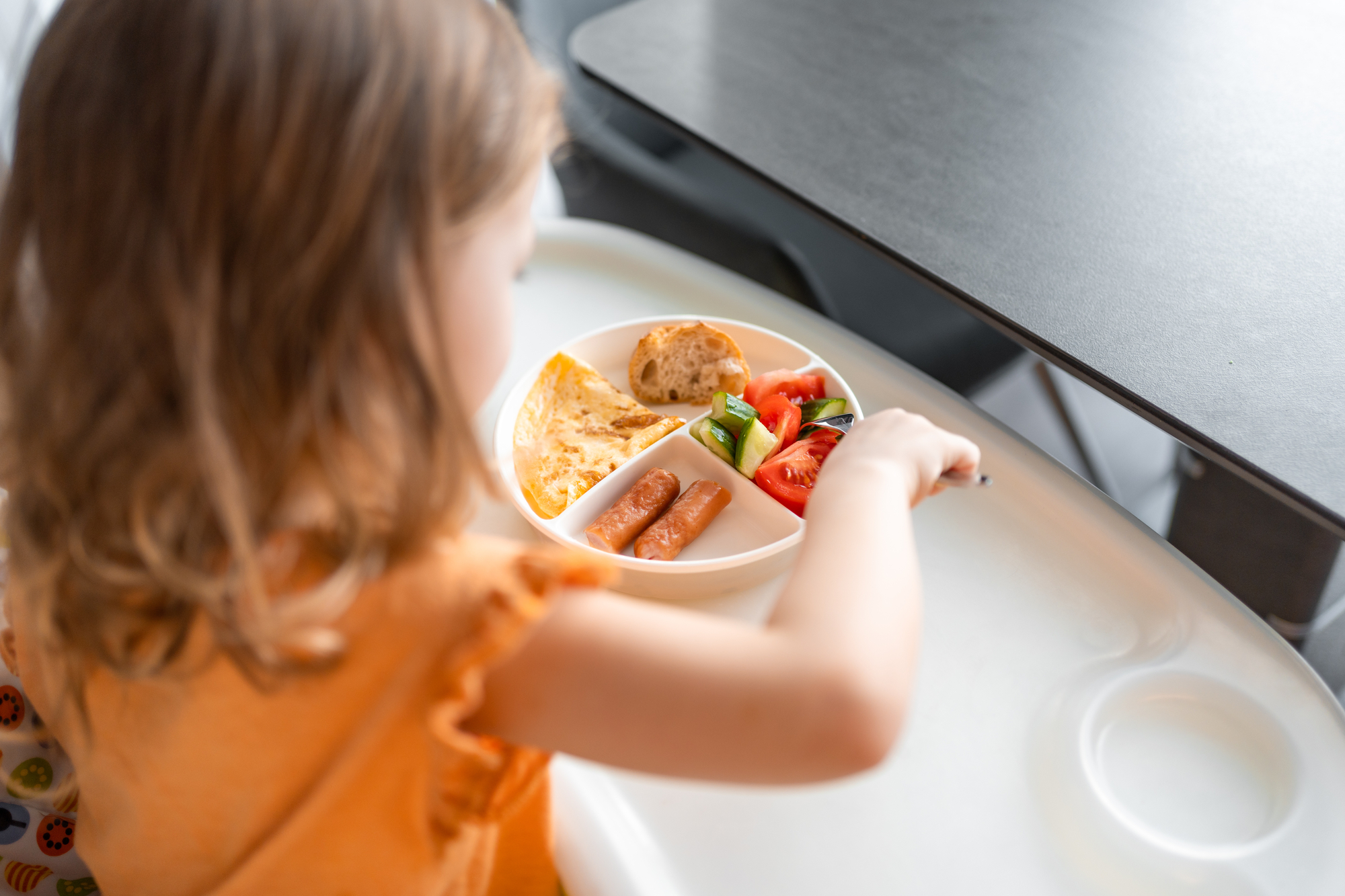Nutrition 101: Developing Healthy Eating Habits in Kids
Teaching your kids healthy eating habits from an early age is one of the best things you can do as a parent. Good nutrition is essential for proper growth and development in children and lays the foundation for a lifetime of good health. However, with so much conflicting advice out there on what kids should eat, it can get confusing.
As your Frisco pediatrician, Entirely Kids Pediatrics is here to boil nutrition down to the basics your kids need. Read on as we provide a Nutrition 101 guide to developing healthy eating habits in kids from a young age.
Start Early with Breastfeeding
It’s never too early to think about nutrition. For infants, breastfeeding provides the gold standard, delivering the essential vitamins and minerals they need. The American Academy of Pediatrics recommends exclusive breastfeeding for the first 6 months of a baby’s life and continuing while introducing solid foods until at least 12 months.
Breastfeeding supports healthy development, boosts the immune system, provides digestion-aiding enzymes, and lowers risks for certain health issues later on. If breastfeeding isn’t possible, using properly prepared formula under pediatric guidance is the next best option.
Introduce Solid Foods Around 6 Months
Starting solids around 6 months ensures your infant’s digestive system has developed enough to handle more foods safely. This also helps baby slowly adapt to textures beyond milk and formula. While every infant’s progression differs, there are some food guidelines to follow at this stage:
-
- Start with iron-fortified rice cereal or oatmeal – Thinner than purees, these get baby used to thicker consistencies.
- Introduce single-ingredient purees – Introduce new foods one at a time to spot potential intolerances. Squashes, bananas, and apples make good starters.
- Include iron and zinc sources – Meats, eggs, beans, and peas provide key nutrients for growth.
- Avoid certain ingredients – Honey, cow’s milk, added salt and sugars should be avoided early on.
- Allow self-feeding – Around 8 months babies can try “finger foods” to learn feeding coordination. Offer small pieces of soft cooked veggies, fruits or toast. Choking hazards should be avoided.
Build Balanced Meals for Toddlers & Older Kids
By age 2, toddlers can eat most foods the family eats as long as preparations are age-appropriate. Keep encouraging self-feeding to develop independence and motor skills.
For toddlers and preschoolers, aim for 3 balanced small meals and 2 nutritious snacks daily to meet energy needs. Breakfast provides important fuel to start the day right. Include a lean protein, whole grain, fruit, or veggie in every meal. Here’s a balanced meal template:
- Breakfast: Whole grain cereal + Fruit slices + Yogurt
- Lunch: Turkey sandwiches with lettuce + Bell pepper sticks + Apple sauce
- Dinner: Tomato & carrot soup + Whole wheat dinner roll + Cheese cubes
- Snacks: Cucumber coins + Nut butter toast
Lean meats, beans, eggs, yogurt, fruits, vegetables and whole grains should make up the bulk of what kids eat. Limit fried foods, salt, sugar and processed items like chips, cookies and sugary cereals since these displace healthier choices.
Set a Good Example with Healthy Family Meals
What you eat sets an example, so aim to establish healthy family meal times together. Involve kids in preparing age-appropriate parts of meals to get them invested in trying new healthy foods. Planning weekly family menus can help streamline grocery shopping and cooking healthy meals.
Here are some kid-friendly healthy meals to try as a family:
- Breakfast: Fruit & yogurt parfaits with granola + hard boiled eggs
- Lunch: Turkey wraps with lettuce & cheese + carrot sticks
- Dinner: Whole wheat pasta with meatballs + roasted broccoli & cauliflower
Other Tips for Creating Healthy Eating Habits
- Go for 2-4 servings of fruit and veggies daily – Offer produce at every meal and have washed & cut veggies handy for quick snacks.
- Choose healthy snacks – Fresh fruits, veggies with dip, nuts, whole grain crackers and yogurt make good balanced snacks.
- Encourage water over sugary drinks – Water and milk are healthiest for hydration and nutrition between meals.
- Involve kids in meal decisions – Give small choices like which veggie side dish or fruit dessert to help them feel independent.
Support Kids’ Healthy Nutrition Journey
Instilling healthy eating habits early in childhood, from first foods through the elementary school years, gives your kids the best chance of meeting nutrition needs for proper growth and avoiding obesity or deficiencies.
As pediatric specialists caring for Frisco-area kids at every stage, Entirely Kids Pediatrics provides guidance on age-appropriate nutrition, from breastfeeding support to packed lunch ideas that make healthy eating doable for families. Our pediatrician enjoys partnering with parents to help each child thrive through balanced nutrition.
For an appointment or nutrition advice from our Frisco children’s health experts, call Entirely Kids Pediatrics at 469-425-3600 today. Investing in healthy eating sets up your child’s body and mind for a lifetime of wellness.

